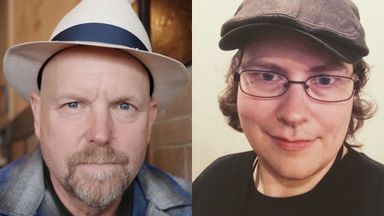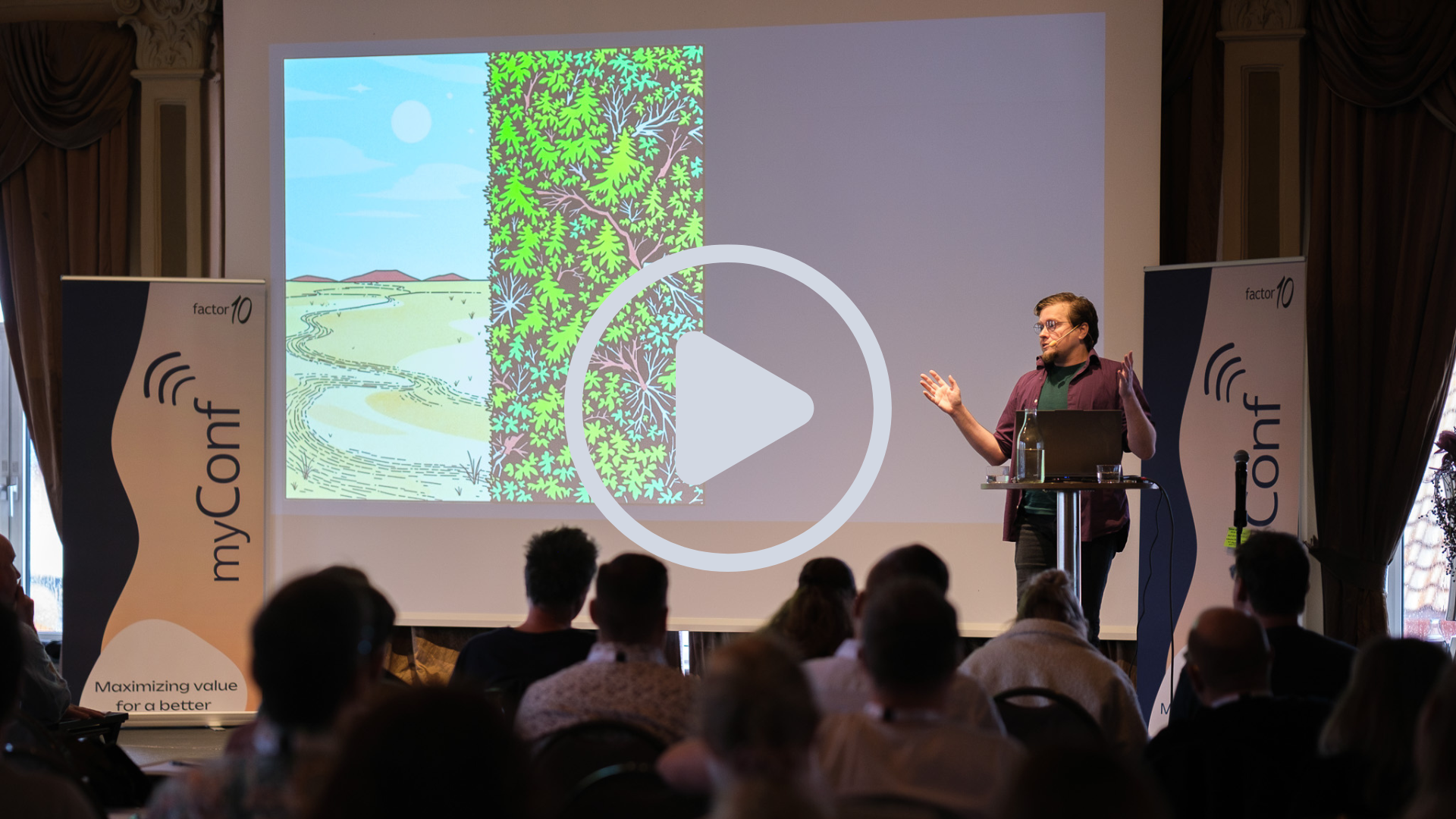The talk: From Desert To Forest
There are two hard problems in software development: building valuable software and managing the team that builds software.
Functional technical organizations cluster around two poles, depending on which challenge they have solved for. Either they are working in a Desert, where delivery is predictable and visibility is high but developers slog through the sand to ship the code. Or they are working in a Forest, where visibility is limited and management relies on trust, but the team is aligned on building software well.
If the company is happy with the outcomes of the Desert, there is no reason to change. But if management is frustrated by quality problems, slow delivery, political squabbles or never-ending meetings, it is helpful to know those issues are the product of organizational design.
Adding even more approvals and layers of hierarchy can't fix those problems. We will talk about what does work, and how engineers can drive the solutions.
(Unfortunately Kent Beck, who was supposed to give this talk together with Beth, had to cancel due to illness)
Watch it now!
Watch a recording of From Desert To Forest by Beth Andres-Beck, published after the conference.
About Beth
Beth Andres-Beck is an engineering leader facilitating evolutionary architecture, graceful code and sustainable software development. From hir experience on teams of three engineers to tens of thousands, zie has built a toolbox to support rigorous software development in generative cultures. Beth currently focuses on promoting delightful code reviews as a tool to share the skills, knowledge and culture of the profession.
Get to know Beth even more at blog.bethcodes.com or on hir LinkedIn page.
About Kent
Kent Beck is an American software engineer and the creator of extreme programming, a software development methodology that eschews rigid formal specification for a collaborative and iterative design process. Kent was one of the 17 original signatories of the Agile Manifesto, the founding document for agile software development. Extreme and Agile methods are closely associated with Test-Driven Development (TDD), of which Kent is perhaps the leading proponent.
Kent pioneered software design patterns, as well as the commercial application of Smalltalk. He wrote the SUnit unit testing framework for Smalltalk, which spawned the xUnit series of frameworks, notably JUnit for Java, which Kent wrote with Erich Gamma. He also popularized CRC cards with Ward Cunningham, the inventor of the wiki.
In 1996, Kent was hired to work on the Chrysler Comprehensive Compensation System. Kent, in turn, brought in Ron Jeffries. In March 1996, the development team estimated the system would be ready to go into production around one year later. In 1997, the development team adopted a way of working which is now formalized as extreme programming. The one-year delivery target was nearly achieved, with actual delivery being only a couple of months late.
Kent lives in San Francisco, California and has worked at social media company Facebook. In 2019, he joined Gusto as a software fellow and coach, where he coaches engineering teams as they build out payroll systems for small businesses.
Get to know Kent even more at kentbeck.com or on his LinkedIn page.
Why I look forward to this talk
Until Øredev 2024, I had no idea Beth Andres-Beck existed—and I assume the opposite is true too.
I ended up talking quite a lot with Beth at Øredev, and being children of someone named “Kent” is not the only thing we have in common. We also seem quite aligned in how we think about software development—which makes sense because our values most likely stem from the same source: the agile software development movement in general and Kent Beck in particular.
I really like the forest and desert analogy—I think it’s spot on. Since it’s Beth’s brainchild, it’s only right that zie is here to deliver the talk in person.
I’m thrilled to have Beth and Kent tell us about the forest and the desert at myConf. I’ve already seen the presentation once, so my being excited to see it a second time should tell you how good it is. =)
/Raniz, consultant at factor10
Why I look forward to this talk
Well, could it possibly be any more obvious that I look forward to Kent’s presentation? :) Kent represented the revolution for me with the early days of XP. It was very much like leaving the Dark Ages and then continuing from XP with TDD and DDD. It all makes so much sense, it all fits so well together. Nothing has helped me as much to become more valuable in my customer projects.
A few years later, agile took strange turns. It became very popular, but it was something else… The interesting parts were still there, just hidden by a fog of ugly-agile. Martin Fowler coined “technical agile” to describe what I think is the interesting form of agile. I guess it could also be called XP-style agile.
Something like ten years ago, I was about to write an internal handbook about the factor10-way. But I stopped quite quickly when I realized that XP was so internalised for me (and factor10), that I didn’t think about it. That attempt ended up being just a few references instead. Standing on the shoulders…
Fast forward. I have followed Kent’s work through the years, it’s always been very inspiring. That’s definitely also the case with his latest book “Tidy First?” How on earth is he still becoming better and better after all those years? I especially like the last third of the book and the thinking about value evaluation, for example with the call option metaphor. An option is a possibility and might be very valuable even if you choose not to use it.
Regarding the talk at myConf… Have you ever realized that you couldn’t be understood by another person, nor understand them? Even though you both work with software development? The idea that this could be due to a context difference really resonates with me. One such context difference is the forest vs the desert.
/Jimmy Nilsson, co-founder, CEO and consultant at factor10
Why I look forward to this talk
Kent is a nice, caring, and stubborn person who has supported me throughout my life. He gave me the engineering mindset and has always allowed me to explore and grow my skills in computer science. Without Kent, I would not be where I am today.
Oh, right, I was supposed to write about Kent Beck. You see, one little-known fact about Kent Beck is that he shares a name with my dad, Kent Raneland (I’m fairly certain Kent Beck’s middle name isn’t Åke, so it’s just the one).
I don’t really know Kent Beck—we’ve spoken at Øredev and while planning myConf—but he seems to have a lot of the qualities that make my dad such a great dad.
What I do know is Kent Beck’s legacy. I encountered Extreme Programming and the Agile Manifesto (I know there are 17 authors, but this text is about Kent Beck, not the other 16) during my first year of University in 2005. While I didn’t grasp the greatness of pair programming at the time, the ideas in XP have stuck with me since, and as I’ve matured as a software engineer, I’ve grown into them more and more. These days, I even teach other developers Test-Driven Development through workshops and coaching. I’ve always been a fan of agile software development, and even though the word “Agile” is having a bit of a crisis, I firmly believe that the values in the Agile Manifesto are key to making developers and businesses thrive together.
I saw Kent and Beth talk about the forest and the desert at Øredev, and I think it’s a solid analogy that more people should hear, which is why I’m very excited about having Kent Beck here in Varberg to tell us about it!
/Raniz, consultant at factor10

